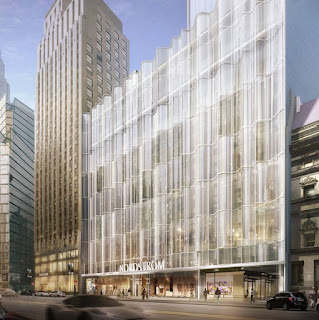Are Premises Liability Waivers Enforceable?: NYC Enters the Phase 2 of Re-Opening
*** The writing does not, and is not intended to, constitute legal advice by any means***
Feel free to follow my Instagram @hongjunlive
In order for a liability waiver to be enforceable in New York, it has to meet the following three requirements. These requirements come from a landmark case, which courts still cite to date. See Gross v. Sweet, 400 N.E.2d 306 (N.Y. 1979).
1) Public policy does not forbid the enforcement of a liability waiver.
What are some sound public policies for and against the enforceability of a waiver as COVID-19 has unfortunately become a fixture in our daily lives? From the perspective of business owners, they should be able to operate their retail stores without the fear of potential lawsuits hanging over their heads if they institute measures as recommended and required by the state guideline and exercise an ordinary level of care ("ordinary" in a time of pandemic, to be exact). Particularly in light of current circumstances, some level of protection indeed is necessary to grease the wheels of the economy in recession. From the standpoint of shoppers, it would equally "shock the conscience" (that's the language courts frequently use to invalidate a waiver) to let businesses go free by virtue of having signed a waiver as a precondition to enter the premises in the first place. If used indiscreetly, the waiver would end up handing a carte blanche to businesses that are outright careless. I should say that the two concerns are both convincing. Therefore, after all, it will be the facts of the case that ultimately color the interpretation of public policy rationales, thereby tilting the scale in one way or the other.
2) The provisions of a liability waiver should be i) "clear and coherent" and its terms ii) "unambiguous and understandable".
I grouped together two separate requirements because they are complementary to one another. The judge in Gross emphasized that the mere use of "simple or monosyllabic language" would not automatically render a waiver clear, coherent, unambiguous, and understandable. In practice, fashion businesses should refrain from using a boilerplate template that they have used before in other business contexts. The waiver should be drafted in a way that reflects the particularities of on-the-premises shopping experiences in this unprecedented time. It helps to highlight, or at least, make conspicuous key provisions in a waiver so that the waiver does not merely serve as a perfunctory ritual. In sum, make sure that shoppers know in full what they are signing up for! That way, a shopper's signature would constitute an informed consent in the eyes of the law.
Even if a waiver satisfies these judge-made requirements, the law comes with a huge caveat: if a store acted "negligently or recklessly" in connection with the handling of COVID-19 over the course of its retail store operations, it would be highly unlikely, if not impossible, to be shielded from the resulting liability. That's why I used qualifying phrases such as "an ordinary level of care" or "careless" above. It's important to see that all three requirements are interconnected to prod businesses to be extra-judicious with the drafting of a premises liability waiver. Also, having distilled the guiding questions from the existing set of precedents, additional considerations might come into play in courtrooms to take note of this era. New Yorkers are ready to open their purses, but safety comes first before satisfaction.











Comments
Post a Comment